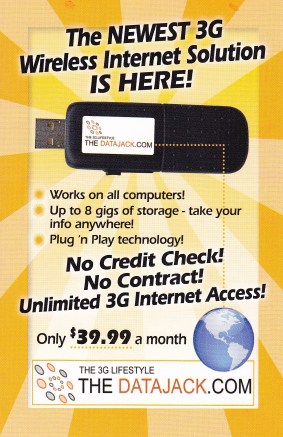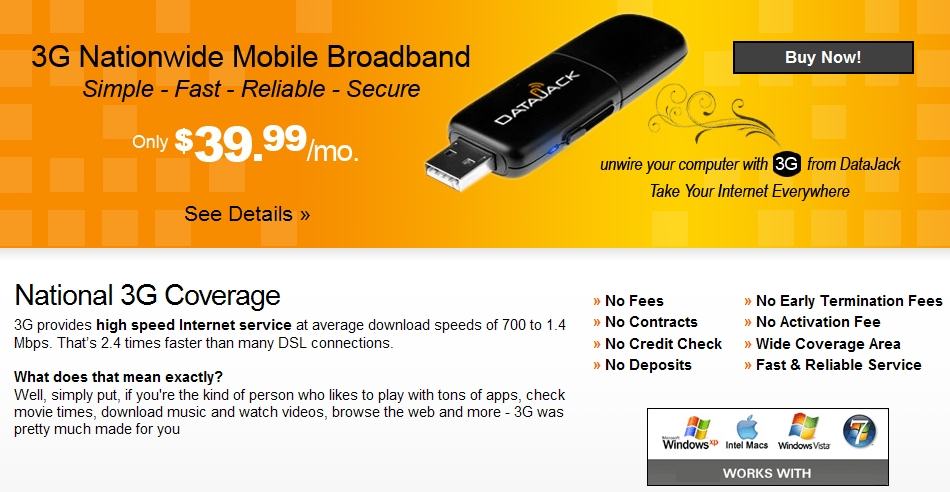 Frontier Communications has quietly begun testing an Internet Overcharging scheme in Minnesota designed to charge confiscatory prices to residents who exceed the company’s usage allowances, demanding customers pay up to $249.99 a month to keep their broadband service running.
Frontier Communications has quietly begun testing an Internet Overcharging scheme in Minnesota designed to charge confiscatory prices to residents who exceed the company’s usage allowances, demanding customers pay up to $249.99 a month to keep their broadband service running.
Stop the Cap! has learned Frontier has begun measuring customers’ broadband usage, and for those in Minnesota who exceed 100GB of usage during a month, Frontier is dispatching e-mail messages telling them they’ll have to agree to pay more — much more — or their service will be cut off in 15 days.
Two e-mail messages are being sent to customers who break the 100 and 250GB usage barriers. Both reference Frontier’s 5GB usage allowance that Stop the Cap! has strongly and repeatedly criticized the company for implementing in the first place. Using that usage allowance as a baseline, Frontier calls out its customers using more demanding they switch to a higher priced service plan if they want to continue service with the company.
- For those achieving 100GB of usage, the new monthly rate is $99.99 per month
- For those achieving 250GB of usage, the new monthly rate is an incredible $249.99 per month
Sources tell Stop the Cap! the Internet Overcharging scheme Frontier is running is an experiment to gauge customer reaction. If the furious customer e-mail reaching us is any indication, it’s another public relations disaster for Frontier Communications. One customer didn’t even realize there was a 5GB usage allowance to begin with, much less a vastly higher new monthly price if he wants to stay with Frontier DSL. He’s not.
Ironically, the experimental pricing plan comes at a time when Frontier is still trying to get state regulators to approve its deal with Verizon to assume control of landline and broadband service in several states. Residents in West Virginia and a dozen other states might be a bit concerned that their unlimited Verizon DSL broadband service, often the only service provider available, could be replaced with a company that is willing to punish its customers with $250 in monthly charges once a customer hits 250GB in usage. Even worse, Frontier takes the overlimit penalty concept to a whole new level, telling customers that new high price represents their new monthly rate plan, not just a temporary penalty.
To add insult to injury, Frontier continues to mislead its customers about the experimental pricing on its own website. As of this writing, Frontier’s Acceptable Use Policy still states:
Customers may not resell High Speed Internet Access Service (“Service”) without a legal and written agency agreement with Frontier. Customers may not retransmit the Service or make the Service available to anyone outside the premises (i.e., wi-fi or other methods of networking). Customers may not use the Service to host any type of commercial server. Customers must comply with all Frontier network, bandwidth, data storage and usage limitations. Frontier may suspend, terminate or apply additional charges to the Service if such usage exceeds a reasonable amount of usage. A reasonable amount of usage is defined as 5GB combined upload and download consumption during the course of a 30-day billing period. The Company has made no decision about potential charges for monthly usage in excess of 5GB.
For customers receiving Frontier’s Scare-o-Gram, it sure sounds like they made up their minds… to charge a lot more for the exact same level of service.
For state regulators, watching Frontier charge ludicrous pricing for broadband service that would make most providers blush should be more than enough evidence that approving Frontier’s plans to take over Internet and landline service in their state is not in the best interests of consumers. For many, it saddles them with a broadband provider that can charge these kinds of prices knowing full well many customers have nowhere else to go.
Copy of E-Mail Sent to Minnesota Customers Exceeding 100 GB of usage a month [emphasis in bold is ours]:
Dear [Customer]:
Frontier is focused on providing the best possible internet experience across our entire customer base. We bring you a quality service at a fair price, dependent upon an average monthly bandwidth usage of 5GB. Over the past months, your account is in violation of our Residential Internet Acceptable Use Policy.
Our policy states that Frontier reserves the right to suspend, terminate or apply additional charges to the Service if such usage exceeds a reasonable amount of usage. A reasonable amount of usage is defined as 5GB combined upload and download consumption during the course of a 30-day billing period.
We realize there are times when our customers use the internet for services such as video and music downloads, however your specific usage has consistently exceeded 100GB over a 30 day period.
We would like to provide you with the option of keeping your Frontier internet service at a monthly rate of $99.99 which is reflective of your average monthly usage. Please call us within 7 days of the date of this email at 1-877-273-0489 Monday – Friday, 8AM – 5PM CST to review your options. If you do not wish to switch to this new rate plan, you can have your service disconnected. If we do not hear from you within 15 days, your internet service will be automatically disconnected.
We continue to manage our network to ensure all of our customers have equal access to the internet and the ability to enjoy all of its available content, at our committed level of service quality.
Sincerely,
Frontier Communications
Copy of E-Mail Sent to Minnesota Customers Exceeding 250 GB of usage a month [emphasis in bold is ours]:
Dear [Customer]:
Frontier is focused on providing the best possible internet experience across our entire customer base. We bring you a quality service at a fair price, dependent upon an average monthly bandwidth usage of 5GB. Over the past months, your account is in violation of our Residential Internet Acceptable Use Policy.
Our policy states that Frontier reserves the right to suspend, terminate or apply additional charges to the Service if such usage exceeds a reasonable amount of usage. A reasonable amount of usage is defined as 5GB combined upload and download consumption during the course of a 30-day billing period.
We realize there are times when our customers use the internet for services such as video and music downloads, however your specific usage has consistently exceeded 250GB over a 30 day period.
We would like to provide you with the option of keeping your Frontier internet service at a monthly rate of $249.99 which is reflective of your average monthly usage. Please call us within 7 days of the date of this email at 1-877-273-0489 Monday – Friday, 8AM – 5PM CST to review your options. If you do not wish to switch to this new rate plan, you can have your service disconnected. If we do not hear from you within 15 days, your internet service will be automatically disconnected.
We continue to manage our network to ensure all of our customers have equal access to the internet and the ability to enjoy all of its available content, at our committed level of service quality.
Sincerely,
Frontier Communications


 Subscribe
Subscribe







